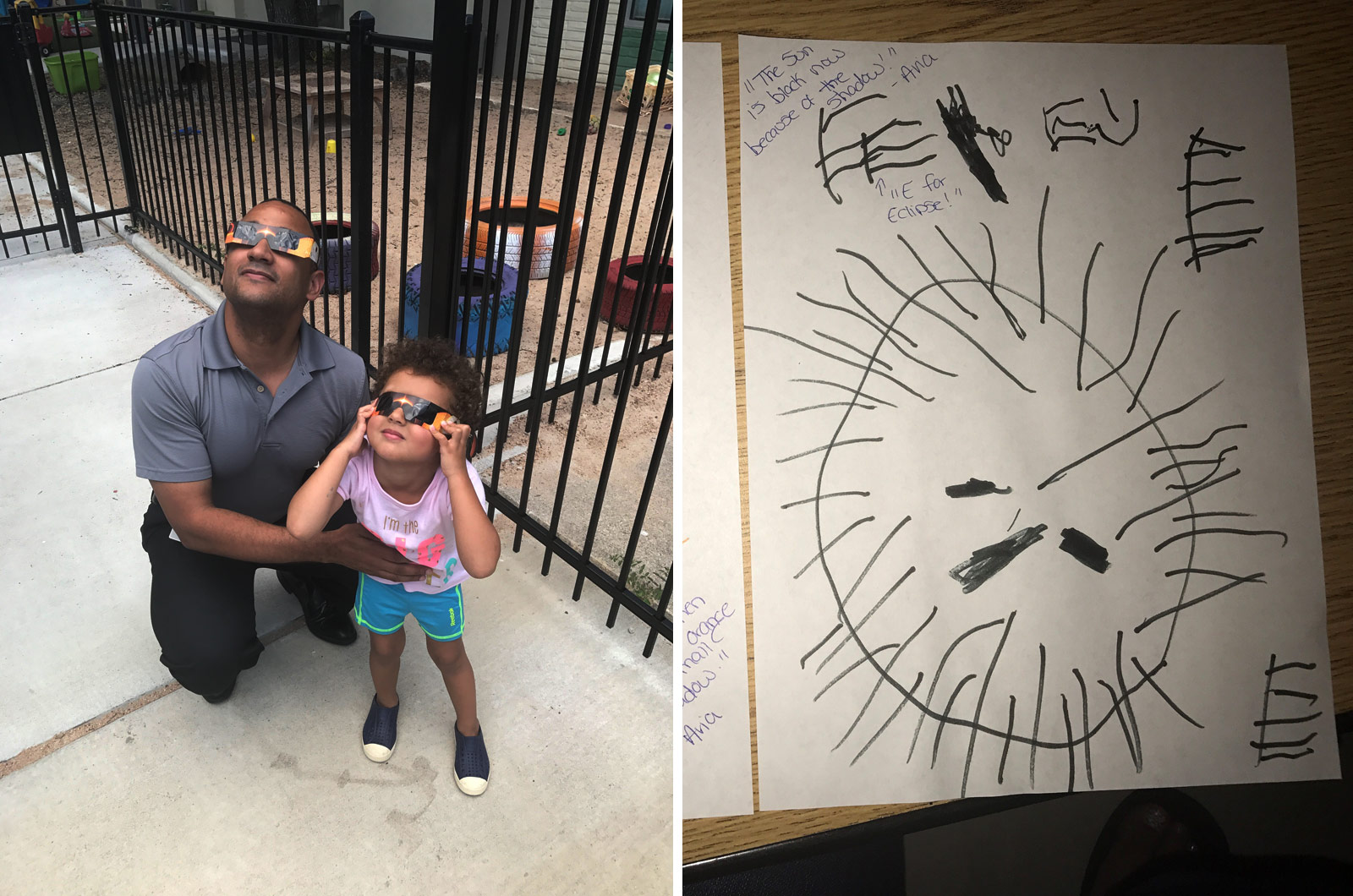The Lavaca Bluebonnets (pre-k) class observe the solar eclipse with special viewing glasses.
Young children are scientists by nature - eager to explore their surroundings and figure out how things work. Sadly, children’s enthusiastic curiosity about the world is often lost by the time they reach adulthood. This loss can be mitigated by an early childhood science curriculum that capitalizes on their natural desire to “figure things out” rather than focusing on teacher-directed experiments that have little connection to children’s lives.
At the UT Child Development Centers, teachers strive to offer children meaningful scientific experiences that allow them to construct their own knowledge about natural phenomena. They focus on creating a science curriculum that is playful, hands-on and takes place in all areas of the classroom. Children’s scientific discoveries are not isolated to the science center, but can take place in any area of the classroom at any time. For example, in the building center as they figure out how to make their tower even higher or in the art area as they explore the properties of glue. Discovery can take place at circle time as children make predictions about what will happen if they put white flowers in green water and in the writing center as they record their observations about their pea plants in their journals.
The solar eclipse on August 21, 2017 presented a perfect opportunity to engage children in a meaningful science experience. In the weeks leading up to the eclipse, many teachers provided books about space and began having conversations during circle about celestial bodies; they transformed their dramatic play areas into space stations and rocket ships; and they provided open-ended art activities that allowed children to represent their understanding about space in creative ways. When young children experience rich, hands-on, multi-sensory activities such as these, they develop a deeper understanding of the world around them and practice skills such as problem solving, explaining their thinking, and making predictions. Strengthening these skills not only prepares children for academic success, but fosters self-confidence and helps children see themselves as capable learners.

Dripping paint onto paper allows children to explore with gravity.
Children respresent their understaning of constellations using colored pencils and star stickers.
A three year old class explores measurement with a rocket ship height chart.
A pre-k class records observations in their science journals.
